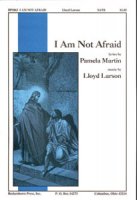
Our Ash Wednesday anthem: I Am Not Afraid (Martin/Larson, Bekenhorst Publishing, BP1863). (You must click the link to hear this one.)
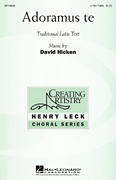 And for Sunday, March 10, 2014, the beautiful Adoramus Te (David Hicken, Hal Leonard, 08748829). This recording is still not our choir, but getting closer: it's from one of the times when our children's choir sang (with many others) at Carnegie Hall for the National Children's Choir Festival. I know one can get tired of anything, but at the moment I feel we could sing this every week!
And for Sunday, March 10, 2014, the beautiful Adoramus Te (David Hicken, Hal Leonard, 08748829). This recording is still not our choir, but getting closer: it's from one of the times when our children's choir sang (with many others) at Carnegie Hall for the National Children's Choir Festival. I know one can get tired of anything, but at the moment I feel we could sing this every week!
I am so not ready to go back on Daylight Saving Time. The only good part about changing the clocks is the extra hour of sleep, and that only happens in the fall. This, however, makes the medicine go down a little easier. (Thanks, Tim!) (My European audience can enjoy it in three weeks.)
Permalink | Read 2483 times | Comments (4)
Category Just for Fun: [first] [previous] [next] [newest]
Although we missed our own Shrove Tuesday pancake dinner and burning-of-the-palms this year, I love this traditional prelude to Lent. After we left Norwood, Massachusetts, our friend Alan became vicar of a small church there. He has since written a book, and more to the point, produced this homage to Shrove Tuesday pancake dinners, inspired by Robert W. Service's The Shooting of Dan McGrew. As a fan of all three (Service, Alan, and Shrove Tuesday pancakes), I had to reproduce it here (with permission).
The kitchen crew was whippin’ it up
at the Redeemer pancake dinner.
The band that was playin’ the Bluegrass tunes
was pickin’ ‘em out like a winner.
There at the back was a man in black,
who was speakin’ of Israel;
And by his side was the love of his life,
the lady that's known as Gail.
The cause of all of this merriment
was the upcoming purple season;
And so the crowd was chewin’ the fat,
as if they needed a reason.
The following day would bring ashes and grief,
forty days of a somber tone.
But tonight they wore beads and sated their needs
by carvin’ the ham to the bone.
The vicar was telling the lamest of jokes,
as the vicar is wont to do.
They say that the Anglicans know how to drink,
and they surely know how to eat too.
These are the simple facts of the case,
and I guess I ought to know.
There was food and fun, and everyone smiled,
I saw as I watched them go.
There’s a time for Lent and a time to repent,
but the season goes down so much better,
If you start it off by gorging yourself
on homemade pancakes and butter.
When he was young, my father had a two-mile walk to work, and used the time to memorize long poems, including Dan McGrew and another Service work, The Cremation of Sam McGee. Later, upon request, he would recite them to his children and grandchildren. That pleasure cemented my love of the poems, and it came flooding back when I read Alan's verse. Thank you, Alan and Vivien!
Permalink | Read 5465 times | Comments (2)
Category Everyday Life: [first] [previous] [next] [newest] Just for Fun: [first] [previous] [next] [newest]
Do most people read faster on an e-reader?
I've discovered that I can borrow books from our library for my Kindle, and this past Saturday I signed out The Hobbit. That we have two physical copies on our shelves is beside the point: Kindle books are the most comfortable way to read in bed—at least under our present lighting setup—and that's what I wanted it for. As a tried-and-true introvert, my brain is always spinning rapidly, and if I don't get sufficient, effective processing time during the day—and sometimes even if I do—trying to fall asleep is like putting in the clutch while opening the throttle: high rpms with no actual progress made. Reading a few chapters of a good book engages the engine and throttles back to where sleep can take over.
For physical books, our library's default loan period is three weeks. The default loan period for e-books is one week.
The downside of so much exposure to Facebook and other modern communication is that I am tempted at this point to write, "WTF?" Instead, I will try to remember what we all said before that offensive term became so common as to jump immediately even to my own mind, and simply say, "Huh?" I find reading a book a week to be an ambitious goal.
I don't think I read any faster (or slower) on the Kindle than with the printed page. Do you?
Permalink | Read 2287 times | Comments (2)
Category Random Musings: [first] [previous] [next] [newest]
Sunday, March 2, 2014:
This being the last Sunday before the alleluias disappear for Lent, we pulled out all the stops with anthems and hymns featuring that joyous shout.
When in Our Music God Is Glorified (arr. by Mark Hayes, Beckenhorst Press, BP1750). There's still no YouTube version, but the link takes you to JWPepper.com, where you can hear it.
This was our introit (alleluia section) and processional hymn (hymn section). It was a clever idea, and mostly went over well, though the congregation was a little confused about when to stand. We managed to sing and walk at the same time (always diffcult with an anthem, rather than a plain hymn), and a wonderful trumpet player (Nancy Micklos King) covereth a multitude of sins.
Our anthem was We're Gonna Worship Christ the King (Pepper Choplin, Lorenz, 10/4245L). This version doesn't really do it justice, but YouTube beggars can't be choosers. We had a great soloist (Mark King), the anthem was fun to sing, and it all came together very well. (Yes, Mark is Nancy's husband, this making the third set of Mark-and-Nancy spouses in our immediate circle.)
Recently we attended another wonderful Horns & Pipes concert at Orlando's Cathedral Church of St. Luke. We have been enjoying these ever since Heather made the suggestion back in 1996. One of the works featured was Fisher Tull's The Binding. I believe Heather and Janet in particular will enjoy hearing it, even though this version I found on YouTube is not quite as glorious as with the larger and more professional Horns & Pipes ensemble.
With Ash Wednesday only a week away, look what Ben & Jerry's has done!
My reading for 2013 started off at a great pace: I had read 28, more than half my goal of 52 (one per week), by the end of March. That by the beginning of 2014 I had completed only 57 shows how busy the rest of the year was.
Here's the list, sorted alphabetically. A chronological listing, with rankings, warnings, and review links, is here. I enjoyed most of the books, and regret none. Titles in bold are particular favorites.
- 3 Theories of Everything by Ellis Potter
- Animorphs #1: The Invasion by K. A. Applegate
- Animorphs #2: The Visitor by K. A. Applegate
- Animorphs #3: The Encounter by K. A. Applegate
- Animorphs #4: The Message by K. A. Applegate
- Animorphs #6: The Capture by K. A. Applegate
- Animorphs #7: The Stranger by K. A. Applegate
- Animorphs #8: The Alien by K. A. Applegate
- Better than School by Nancy Wallace
- Child's Work by Nancy Wallace
- Cooked by Michael Pollan
- Deer Hunting with Jesus by Joe Bageant
- Difficult Personalities by Helen McGrath and Hazel Edwards
- Getting Organized in the Google Era by James A. Martin
- God Is Red by Liao Yiwu
- The Gospel of Ruth by Carolyn Custis James
- Guitar Zero by Gary Marcus
- Hannah Coulter by Wendell Berry, narrated by Susan Denaker (audio book)
- The History of the Medieval World by Susan Wise Bauer
- The Hobbit by J.R.R. Tolkien
- The Hork-Bajir Chronicles by K. A. Applegate
- How to Be Idle by Tom Hodgkinson
- The Idle Parent by Tom Hodgkinson
- Indian Captive by Lois Lenski
- The Keys to the Kingdom #1: Mister Monday by Garth Nix
- The Keys to the Kingdom #2: Grim Tuesday by Garth Nix
- The Keys to the Kingdom #3: Drowned Wednesday by Garth Nix
- The Keys to the Kingdom #4: Sir Thursday by Garth Nix
- The Keys to the Kingdom #5: Lady Friday by Garth Nix
- The Keys to the Kingdom #6: Superior Saturday by Garth Nix
- The Keys to the Kingdom #7: Lord Sunday by Garth Nix
- Kluge by Gary Marcus
- Landmark 2: The Landing of the Pilgrims by James Daugherty
- Landmark 9: The Building of the First Transcontinental Railroad by Adele Nathan
- Life of Fred: Apples by Stanley F. Schmidt (This series is not bolded, because they are math textbooks, but I loved reading them, and they're great math stories.)
- Life of Fred: Butterflies by Stanley F. Schmidt
- Life of Fred: Kidneys by Stanley F. Schmidt
- Life of Fred: Liver by Stanley F. Schmidt
- Life of Fred: Mineshaft by Stanley F. Schmidt
- Lilith by George MacDonald
- Lost Women of the Bible by Carolyn Custis James
- Make the Bread, Buy the Butter by Jennifer Reese
- The Man Who Was Thursday by G. K. Chesterton
- Meet Christopher Columbus by James T. de Kay
- The Myth of the Garage by Chip Heath and Dan Heath
- The Princess and Curdie by George MacDonald
- The Princess and the Goblin by George MacDonald
- Project-Based Homeschooling by Lori Pickert
- The Second Jungle Book by Rudyard Kipling
- Simplicity Parenting by Kim John Payne
- The Sisters Grimm by Michael Buckley
- The Spirit Well by Stephen R. Lawhead
- The Story of the Other Wise Man by Henry Van Dyke
- The Tipping Point by Malcolm Gladwell
- What I Saw in America by G. K. Chesterton
- When Life and Beliefs Collide by Carolyn Custis James
- A Year with G. K. Chesterton edited by Kevin Belmonte
Permalink | Read 2747 times | Comments (0)
Category Everyday Life: [first] [previous] [next] [newest] Foundations 2013: [first] [previous]
Sunday, February 23, 2014: How Great Is Our God (Chris Tomlin, arr. Jack Schrader, Hope Publishing Company, C5491).
While we were singing, one of the little girls in the second row got up and started to dance!
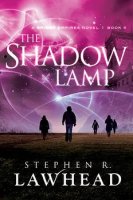 The Shadow Lamp by Stephen R. Lawhead (Thomas Nelson, 2013)
The Shadow Lamp by Stephen R. Lawhead (Thomas Nelson, 2013)
I'd been looking forward to the next installment of Lawhead's Bright Empires series since I finished #3, The Spirit Well. (#1 is The Skin Map and #2 The Bone House.) Fortunately, our library is generally quite responsive to suggestions for new books to acquire, and I recently finished #4, The Shadow Lamp. Glad to return to the adventures of the characters and to Lawhead's captivating, if disorienting, world, I was alas somewhat disappointed by this installment. The first three books I found increasingly interesting and well-written, but this one did not hold together as well. There are so many characters now that even 371 pages provide only snapshots where I was hoping for a movie.
What's more, as the story nears its climax, its Christian foundations have become more explicit. This is hard to articulate, as it's more an impression than something rational, but I found it more effective in the background. Unlike many Christian writers, certainly most modern ones, Lawhead does a good job of making it integral to the story rather than preachy. But that sort of thing is so very hard to do well. It's akin to the problem of portraying a truly good person; it was C.S. Lewis who expressed the problem best when he acclaimed George MacDonald all but unique as a writer whose good characters are believable and his villains "stagey," instead of the other way around (preface to George MacDonald: An Anthology). What Lewis called the "Kappa element" in a story (very roughly, the atmosphere, flavor, or tone that infuses the tale) is what makes it convincing for me, as in Tolkien's The Lord of the Rings, which is shot through from beginning to end with Christian truth that never comes explicitly to the foreground. The Shadow Lamp loses something by making it so obvious.
All that aside, it was good to become reacquainted with the characters and a truly fascinating and imaginative story, and I'm hoping for better in the final book, The Fatal Tree, due to be released in September. If you're interested in the stories, by the way, and haven't yet begun the series, I recommend waiting for the last book to be released, so as to be able to read them in quick succession. It's too complicated a tale to let many months go by between books.
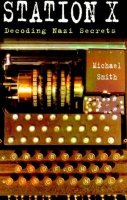 Station X: Decoding Nazi Secrets by Michael Smith (TV Books, 1999)
Station X: Decoding Nazi Secrets by Michael Smith (TV Books, 1999)
Writers like Michael Pollan, John McPhee, and Rowan Jacobsen can take the oddest subjects and weave them into a riveting story. Would that any of them had written Station X! Michael Smith has a riveting story: the long-kept secret of the codebreakers that revealed so much of Axis strategy and tactics during World War II. The facts themselves kept me reading the book, but I'd have finished it in a day if it had been written as I'm sure it could be. Without a doubt it's a story worth knowing, and you can get a taste of it from Wikipedia.
I had heard, of course, that the British had cracked the Germans' supposedly uncrackable Enigma Machine in WWII, a fact that only became known much later—the techniques were still being used in the Cold War—leaving participants from the lowest level to Winston Churchill unable to talk about what they did during the war. Here are a few things I didn't know:
- The success was not due to a "big break" that solved the problem once for all, but to many little breaks that added up and to much tedious work—work and breaks that needed to be repeated and achieved every day. In addition to serious mathematics, cracking the codes required intuition, imagination, guesswork, and persistence. Old-fashioned, flesh-and-blood spying played a significant role, and good ol' human mistakes (such as starting a message with the very recognizable "Heil Hitler!") were essential.
Success depended very largely on German operators ignoring the rules. "We could usually break things when we identified the human error and that was what it was all about," said Mavis Lever. "If the Germans had kept to the rule book and done it properly, as they were instructed to do, then of course we wouldn't have been able to get it out."
Among his many achievements, Tiltman had helped to crack the cipher used by the Japanese naval attaché in Berlin, assisted by the latter's tendency to begin each of his reports with the phrase: "I have the honor to report to your excellency that..."
- Cracking the codes began during World War I.
- The Poles made the first critical break, providing both irony and concern later, during the Cold War.
- Bletchley Park workers were a motley crew of brilliant and eccentric folks. The initial group consisted mainly of liberal arts professors, on the grounds that codebreaking primarily required language skills. When mathematicians were brought in they and their work were viewed with suspicion: what could they possibly contribute? (More)
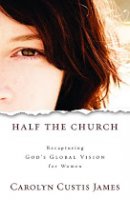 Half the Church: Recapturing God's Global Vision for Women by Carolyn Custis James (Zondervan, 2011)
Half the Church: Recapturing God's Global Vision for Women by Carolyn Custis James (Zondervan, 2011)
I've reviewed three of Carolyn Custis James' books before (When Life and Beliefs Collide, The Gospel of Ruth, and Lost Women of the Bible); this is her most recent and I'm happy to say our library added it to their shelves at my request. I'm not even going to attempt to rank the four, but just say that Carolyn James isn't losing any steam. She continues fleshing out her discoveries concerning a Biblical view of the role of women, not only in the church but in all creation. This time her vision was inspired and enhanced by her reading of Half the Sky (Kristof/WuDunn).
As usual, and despite her own assurances to the contrary, I think James underestimates both the difficulty and the importance of full-time, long-term motherhood, and is in danger of heaping still more burden and guilt on those who are already struggling. I truly get her position that "marriage and babies" is an insufficient—downright paltry—vision of God's overall plan for his daughters, implying that the young, the old, and those without husbands or incapable of bearing children are second-class citizens in God's Kingdom. However, I believe that a vision of childrearing as only a short interlude in one's life is also deficient, and that James misses important contributions of those who have committed to large families (now defined as more than two children), childrearing as full-time work, and homeschooling. She also appears not to understand how difficult and intellectually challenging it is to do well in such a profession, and how little such people are respected by society (including most churches).
But that is not James' battle, and one cannot cover all bases in every book. What she does cover, she handles superbly.
As usual, here are a few random quotations, to give you a feel for Half the Church, and to remind my future self of what's inside.
Literary experts tell us every good story has conflict. ... In fact without conflict a story has no plot. ... Which made me wonder, if God is the master storyteller—the creator of story—and if conflict makes the story, is there conflict before Genesis 3? ... If humanity had never fallen into sin, would we be living in a plotless story now? For that matter, will heaven be plotless? Is conflict only and always destructive and the result of fallenness? Or is there a healthy, necessary, constructive variety of conflict that creates a gripping plot and is designed to make God's image bearers flourish and grow? (pp. 66-67)
Conflict brings out the leader in us, transforms our lives from the mundane to the cosmic, and by God's grace forges us into more compassionate, selfless leaders. Conflict in our stories isn't in the way; it is the way—to becoming better leaders, better image bearers, to creating a better story—to the fulfillment of the Story. (p. 97)
We're currently undergoing some home phone renovations, so if you need to contact us, please do so via e-mail, cell phone, Facebook, or here. Thanks for your patience.
UPDATE 2/19: The home phone is working now (thanks, Lime Daley!) but we'll be making changes now and then over the next week, so you can still resort to the above contact methods if necessary. (You know I prefer e-mail most of the time, anyway.)
Permalink | Read 2513 times | Comments (0)
Category Everyday Life: [first] [previous] [next] [newest]
Our anthem, February 16, 2014:
Come, Christians, Join to Sing arr. Carlton R. Young
(Sorry, still no acceptable YouTube version.)
Thanks, Jon, for finding this. From where I sit (the office next door) this is enough like Porter's frequent phone meetings to have me (almost) rolling on the floor laughing. (No, I will not say ROFL.)
Permalink | Read 2144 times | Comments (2)
Category Just for Fun: [first] [previous] [next] [newest]



